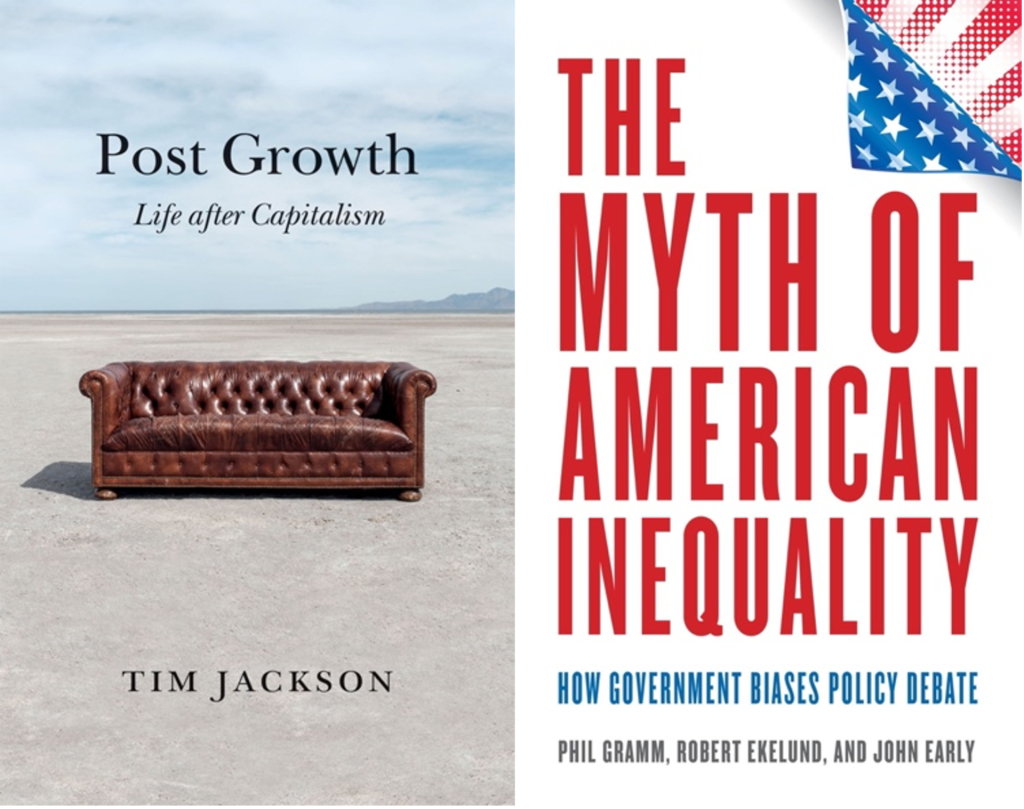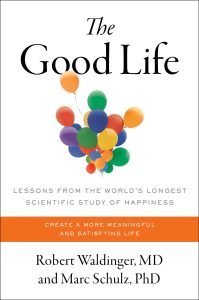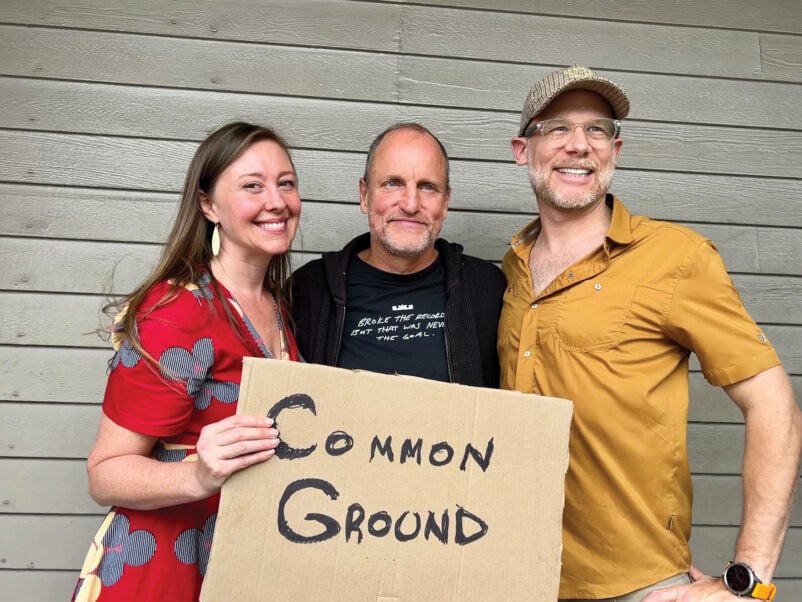An ecological economist steers us toward radical new terrain in the effort to sustain planetary health. A Harvard Study tells us how to live long and prosper. A documentary seeks novel ways to achieve longevity. (Bonus: a specious work of unhealthy economic history is debunked.)
Post Growth: Life After Capitalism & The Myth of American Inequality

A curious new tradition has emerged among chief executives. As a calendar year draws to a close, CEOs across industries seem to find it important to tell us what they’ve read. Their gift to us is, apparently, a kind of literary performance. Such seasonal bookishness can be playful or pedantic, vapid or visceral. It depends. But because they have soared on fiscal wings above the madding crowd, our late capitalist philosophy suggests they must surely hold superior intellect as well. Thus, attention must be paid.

This brings us to a stack of books on Doug McMilllon’s desk.
The CEO of Wal-Mart is an anomaly. A product of rural America who levitated above his farmland origins to his current perch above the world’s largest employer, it’s hard not to see Mr. McMillon as a particularly American image of possibility. Every morning, more than two million humans wake up and go to work for the organization he leads. So, it is notable when, along with predictable book recommendations about the metaverse and generic self-improvement, one spots a work of peculiarly insidious denialist propaganda, The Myth of American Inequality.
The title of former Senator Phil Gramm’s recent work, a specious and ideological re-reading of decades of economic data, leaves little to interpret. In the fantasy world of Gramm, all that you think you know about the wealth gap is wrong. It is, in fact, a sad story spun by leftist academics based on flawed data models that have then been perpetuated by the government and allowed to dominate the debate for decades. Until, our noble Senator arrives to set the thinking of Thomas Pinketty, Janet Yellen, Marianne Bertrand, Lawrence Summers, and the vast majority of economists in the world straight. Like the climate change denialists with whom Gramm keeps close company, his genre is science fiction without the science.
One might expect such an apologia from a retired politician who played a significant role in the monetary policies that created an extraordinary divergence in prosperity and potential. The chief executive of Wal-Mart, of course, has a front-row seat—as both employer and retailer—to the challenges facing families and communities living in the world Gramm’s policies helped create, while simultaneously overseeing a company that benefitted tremendously from the same. So perhaps fidelity should not be surprising. But might one be forgiven for thinking it’s a little on the nose?

In his brutally clear-eyed assessment of the current state of capitalism, Post Growth, Tim Jackson would place a Gramm-McMillon alliance in the category of a declining system’s desperate attempts to defend itself against eventual demise. Where Gramm takes comfort in his tiny house of ideological defensiveness, Jackson takes to the hills, wandering a vast and diverse landscape of economists, politicians, poets, and practitioners to interrogate what he deems the “foundational myth” of capitalism.
In truth, what Jackson describes is not one myth but many, what Arlie Hochschild names the “deep story,” a richly imbricated collection of narratives that comprise what we understand as Capitalism. This particular story has held powerful sway over the imaginations and behaviors of our societies, with the assumption of perpetual growth, the refusal of human limitations, and even the denial of death dominating our decision-making context and legitimizing a succession of policies that have proven disastrous for the planet and its human population.
Like all stories, however, this one must come to an end. From Jackson’s panoramic seat, the foundational myth of capitalism has been crumbling for decades. Hastening its demise are long-term trends—decreasing labor productivity, subsequent collisions between wage-earners and profit-owners, the surpassing of planetary boundaries that sustain current practices of production and distribution—dysfunctional patterns which have been increasingly obvious but easily avoided, hidden by the curtain of prosperity and the fables of leaders like Gramm.
Jackson’s view is not only backward-facing, while his criticism of capitalism’s fallacies and foibles is needle-sharp, he is also well-practiced at the reasonable delivery of heterodox ideas. Since the publication of his seminal work Prosperity Without Growth in 2009, he has been a leading voice among the movement that ranges from the pragmatists Green New Dealers to the radical DeGrowthers, which vary in their tactics but are joined by their daring to imagine beyond the waning days of capitalism to what’s next.
Such a post-growth narrative is rich with possibility, and Jackson delights in exploring the new mythic terrain. Placing in conversation thinkers as varied as Rosa Luxembourg, Pierre Thielhard de Chardin, Emily Dickinson, Thich Nhat Hanh, Martin Heideggar, Jeremy Bentham, and dozens more, Jackson makes a case for a non-incremental shift to a new social contract, one he sees made evident in the public sector response to the COVID-19 pandemic. The swift and historic action taken by governments and society provides a model for bold action that can usher in a promising new era of human flourishing.
The Good Life: Lessons From the World’s Longest Scientific Study of Happiness
By Robert Waldinger and Marc Schulz

In his compelling work on the history of happiness, Darrin McMahon reminds us that happiness as an individual right is a quite recent addition to the list of fleshly desires and demands. For most of human history, the idea of happiness was linked to a heightened state in which one is lifted by the gods, a gift granted by fate. If given, you were blessed. If not, ‘twas not meant to be.
Not so for us, as Thomas Hardy laments in his famous lines: “If but some vengeful god would call to me from up the sky, and laugh…But not so.” In other words: You’re on your own, kid. In the past two centuries, we’ve managed to make happiness an obligation, an act of personal achievement that’s so damn hard to come by that we’ve propped up billions of dollars in cottage industries to help us find it.
The library of happiness is vast and varied. Populated by self-helpers and healers, thought leaders and therapists, monks, millionaires, and memoirists. Whether grounded in a method, advocating a mindset, channeling the wisdom of tradition, alchemizing personal experience, or some mix of the above, the literature of happiness tends toward trends and, as a genre, thrives mostly on its inability to deliver on what it promises.
If we haven’t the gods to thank for the most recent addition to this catalog, The Good Life, then we can at least be grateful to the Harvard Study of Adult Development, the longest in-depth examination of adult life ever conducted. Starting just after the Great Depression and continuing to this day, the Study began by following 724 men from diverse socioeconomic backgrounds for eight decades, then expanded to include their spouses, and recently expanded again to include more than 1,300 of their Baby-Boomer children. The project’s purpose is to answer the question we only began asking a couple of hundred years ago: what makes a happy and meaningful life?
The literature of happiness would like you to think there are no simple answers. Dr. Robert Waldinger, the current director of the Harvard Study, and his co-author Marc Shulz, suggest there actually might be. “Good relationships,” they write, “keep us healthier and happier. Period.”
Having read the ten chapters that somehow remain breezy despite the steady drumbeat of supportive research, one can forgive them for writing the word “Period.” There is a dramatic sense of conclusion to The Good Life that evades most books that approach the same question. Perhaps it’s the approachability and recognizability of the human stories that fill the report. Even a cynic would have a hard time resisting the blend of qualitative and quantitative that extends across the various dimensions of human-to-human interaction: from family to romance to work to casual encounters and beyond—and the constant evolution required.
The Good Life has a timeless quality to its discovered wisdom, but one can’t help but view it through the lens of post-pandemic contemporaneity. As societies rethink themselves, as workers rebalance their commitments, as organizations redesign their expectations, as governments reimagine the social contract, one wonders if the Harvard Study can provide us with a direction of travel: toward a society that privileges the relational above the transactional, the accumulation of connections above commodities.
Limitless with Chris Hemsworth

Humans across time and cultures, claimed James Frazer in The Golden Bough, like their gods to die. Something resonates about a melting Icarus or an arrow-pierced Baldr. It’s nice, of course, when the gods come back with a one-off reboot like Jesus of Nazareth or Dionysus. Should they, like Persephone or Osiris, die and come back often, we embed them into our understanding of time and season. Something to aspire to.
In his entertaining, educational, existential, and downright enjoyable documentary series Limitless, Chris Hemsworth, best known for his cheeky, gargantuan depiction of the Norse god Thor in the Marvel universe, aims to best them all and live forever. Well, not quite forever. But for as long as he can. And he aims to find out how.
Surprisingly slight in the months between filming, the casually charismatic Hemsworth employs a list of coaches and instructors to help him push the boundaries of his mental and physical capabilities in the search for longevity and wellness. [One such coach, is Peter Attia, who is interviewed on page 34.] The journey ventures to epic locations, includes feats of daring physicality and surprising intimacy, and along the way offers illuminating insights into the new science of health.
In Hemsworth, viewers find an awkward and approachable earnestness that’s often lacking in celebrity actors who try their hand at documentary work. The extraordinarily likable Leonardo DiCaprio and Zac Efron, for instance, shed nearly all charisma when they drop their characters and become themselves. Hemsworth is the opposite, somehow becoming more magnetic through vulnerability.
And vulnerability is, Hemsworth reminds us in the end, the road we all travel. The title of his show, one hopes, is purposefully ironic. This is a show very much about limits. They can be pushed. They can be redefined with knowledge and persistence. If yours are set with self-defeating closeness, the coaches say in various voices, then limits can be reset. But they cannot be exceeded. That human life comes with an expiration date is a truth universally despised. But the acceptance of this, and the ability to thrive within the awareness of denouement, is the work of Hemsworth’s contemplation. And the work of a lifetime.












